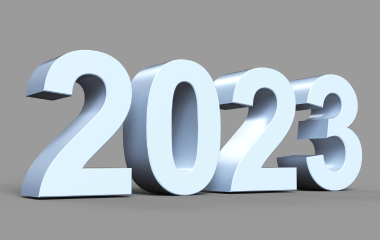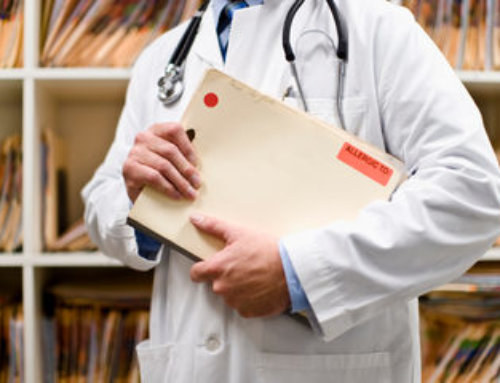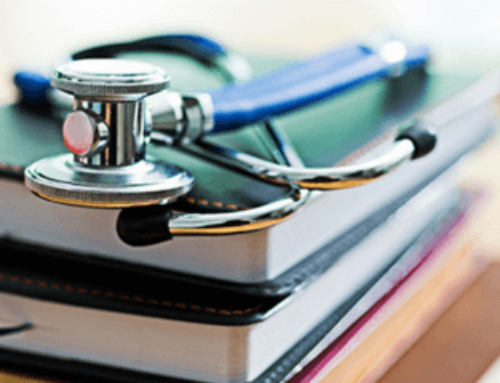In 2023 the public health emergency related to the COVID-19 pandemic finally ended, but the Philips Respironics PAP device recall continued past its two-year anniversary. Meanwhile, the FDA took action more than 20 times to clear or expand access to sleep technology medical devices. Those were just some of the most noteworthy events that had an impact on the field of sleep medicine during the year.
On April 10, President Joe Biden signed into law a joint resolution terminating the national emergency concerning COVID-19 after more than three years. In June, the White House confirmed that Biden had started using a CPAP machine in recent weeks to improve his sleep quality. Reporters had noted that there were lines visible on his face one morning when he stopped to field questions.
While technology giant Amazon discontinued its Halo Rise sleep tracker only seven months after its debut, video game titan Nintendo announced the launch of its latest creation, Pokémon Sleep. The FDA approved Lumryz, an extended-release formulation of sodium oxybate indicated to be taken once at bedtime for the treatment of cataplexy or excessive daytime sleepiness in adults with narcolepsy. In Florida, Gov. Ron DeSantis signed into law bipartisan legislation (HB 733) that requires the instructional day to begin no earlier than 8 a.m. for middle schools and 8:30 a.m. for high schools in the state starting in 2026. The AASM released updated versions of two essential resources for sleep clinicians: the AASM Manual for the Scoring of Sleep and Associated Events, Version 3, and the International Classification of Sleep Disorders – Third Edition, Text Revision.
Throughout 2023, there were a variety of significant developments and changes that had an impact on the field of sleep medicine. Here is a recap of some of the top sleep medicine news and trends from 2023. You can explore each topic below for key headlines from the past year, and you can review the quarterly State of Sleep Medicine Report for more highlights and details.
On June 14, 2021, Philips initiated a voluntary recall notification in the U.S. (and an international field safety notice) for specific Philips Respironics models of continuous positive airway pressure (CPAP), bilevel positive airway pressure (BPAP), and mechanical ventilator devices. The recall became even more problematic in April 2023 when the FDA announced Philips is recalling certain reworked DreamStation devices because some were assigned incorrect or duplicate serial numbers during initial programming, which can cause incorrect therapy or therapy failure. In September, more than two years after the recall was initiated, Philips announced it had reached an agreement to resolve a U.S. class action lawsuit, subject to final court approval. Payments are not expected to begin until the first quarter of 2024 at the earliest.
In late September, ProPublica and the Pittsburgh Post-Gazette co-published an investigative report about the recall, concluding that Philips waited years before recalling the devices. Philips posted a brief statement in response to the report, and the FDA posted a new statement attributed to Jeff Shuren, MD, JD, director of the FDA’s Center for Devices and Radiological Health, who wrote, “The FDA remains unsatisfied with the status of this recall.” In December, ProPublica and the Pittsburgh Post-Gazette published a follow-up report accusing the FDA of failing to use its power to protect people who use CPAP.
The field of sleep medicine continued to experience an explosion of innovation as the FDA cleared or expanded access to these sleep technology medical devices.
FDA clears Vivos DNA oral appliance
Vivos Therapeutics announced that the FDA has issued 510(k) clearance for its DNA (day – night appliance) device, which opens the airway by expanding the palate and training the tongue to rest in a proper position to promote nasal breathing.
Sunrise HSAT device gets FDA clearance
Belgium company Sunrise announced the FDA has cleared its second generation HSAT device that uses artificial intelligence to aid in the diagnosis of OSA and sleep-related breathing disorders using the bio-signal of mandibular jaw movements.
FDA expands access for eXciteOSA
Signifier Medical Technologies announced the FDA has approved the removal of temporary or permanent metal implants, dental braces, and intraoral metal prosthesis, restorations, and appliances from contraindications for eXciteOSA.
Belun Sleep System gets FDA clearance
Belun Technology announced it has received FDA 510(k) clearance for its Belun Sleep System. The Belun Ring is a wearable device that aids in evaluating moderate to severe sleep-disordered breathing in adults with suspected sleep apnea.
FDA: Inspire for teens with Down syndrome
Inspire Medical Systems announced it has received FDA approval to offer Inspire therapy to pediatric patients with Down syndrome who have OSA, are at least 13 years old, have an AHI between 10 and 50, and are unable to benefit from CPAP.
Wesper announces third FDA clearance
Wesper announced it received a third clearance from the FDA, allowing for important clinical-grade longitudinal data collection over multiple nights with the Wesper platform to diagnose, titrate, and monitor treatment efficacy over time.
FDA gives De Novo approval to SNOO
Happiest Baby announced the FDA has given De Novo approval to its SNOO Smart Sleeper, which keeps sleeping babies safely positioned on their back and uses continuous rhythmic sensations that mimic the experience of being in the womb.
FDA grants De Novo request for RLS therapy
Noctrix Health announced the FDA has granted its De Novo request for the NTX100 Tonic Motor Activation System to treat symptoms of moderate to severe restless legs syndrome and improve sleep quality in patients refractory to medications.
New FDA clearance for ANNE One platform
Sibel Health announced a new 510(k) clearance from the FDA for its ANNE One advanced wireless monitoring platform, which is now cleared as a home sleep diagnostics and continuous patient monitoring solution for neonates, infants, and adults.
FDA clears Cumulus dry-sensor EEG headset
Cumulus Neuroscience announced its dry-sensor EEG headset has received FDA 510(k) clearance for use by adults and adolescents for the remote acquisition, display, and storage of EEG data. The headset can be self-applied in less than five minutes.
AcuPebble HSAT device coming to U.S.
Having received FDA 510(k) clearance in February for its AcuPebble Ox100 home sleep apnea test, London-based Acurable plans to start selling the device in the U.S. this summer. It is an update of the first-generation AcuPebble SA100.
FDA approves remedē conditional MRI use
Zoll announced the FDA has approved the remedē System for conditional use with magnetic resonance imaging. The implantable transvenous phrenic nerve stimulation therapy is a treatment for adults with moderate to severe central sleep apnea.
Inspire receives AHI indication expansion
Inspire has received approval from the Food and Drug Administration for an expanded indication that includes an increase on the upper limit of the AHI to 100 events per hour from 65. It also raises the BMI warning in the labeling to 40 from 32.
FDA clears Owlet pulse ox sock for infants
Owlet announced FDA clearance of BabySat, the first medical pulse-oximetry device featuring an advanced, wire-free sock design. BabySat is expected to launch later this year and will be available only through prescription from a physician.
FDA clears Ceribell EEG seizure monitoring
Ceribell announced FDA 510(k) clearance of its ClarityPro software for diagnosing electrographic status epilepticus. Clarity delivers real-time seizure monitoring and alerts and is eligible for CMS reimbursement for Medicare patients.
FDA clears smart ring as pulse oximeter
BodiMetrics announced that its circul pro ring has received FDA clearance as a pulse oximeter, noting that its form factor and LED technology make it uniquely designed to accurately measure blood oxygen level on people with any skin tone.
FDA clears AI-assisted Dreem 3S device
Beacon Biosignals announced FDA 510(k) clearance for the Dreem 3S, a wearable headband with integrated machine learning algorithms. It captures EEG data from the brain to monitor sleep architecture and aid in the diagnosis of disturbed sleep.
FDA approves AI sleep analysis algorithm
South Korean technology company HoneyNaps announced that its Somnum AI sleep disease analysis algorithm has been approved by the FDA. It uses AI and leverages deep learning to perform real-time analysis of vast volumes of biosignals.
FDA clears Sleepiz bedside device
Swiss technology company Sleepiz has received FDA clearance for its Sleepiz One+ device, which uses Doppler radar technology for contactless, bedside monitoring of heart rate and respiration rate in adult patients at rest or during sleep.
FDA clears Owlet Dream Sock infant pulse ox
Owlet announced De Novo clearance from the FDA of Dream Sock, the first and only over-the-counter medical pulse oximetry solution for infants. This follows the company’s previous FDA clearance of BabySat, a prescription monitoring system.
FDA clears Vivos oral appliance for severe OSA
Vivos Therapeutics announced the FDA has granted 510(k) clearance for treating severe OSA in adults using the Vivos’ removable CARE (Complete Airway Repositioning and/or Expansion) oral appliances, including the flagship DNA oral appliance.
Compumedics announced the FDA has cleared the Somfit home sleep apnea test device to be marketed in the U.S. It comprises a single-use adhesive-gel electrode, the Somfit device (pressed onto the electrode) and a mobile app.
New insomnia device gets FDA clearance
Belfast neuro-technology company Neurovalens has received FDA 510(k) clearance for its Modius Sleep device, which is used to treat chronic insomnia by delivering a small and safe electrical pulse to the head for 30 minutes before bed.
Tech innovators continued to explore new ways to assess sleep and treat sleep disorders, with novel innovations including an injectable, an ingestible, and everything in between.
Medical device treats OSA with scents
Israeli start-up company AppScent has developed a device that uses remote, non-contact sensors to detect sleep apnea and patented scent technology to treat OSA, delivering a fragrance that restores breathing by triggering a sniffing reflex.
Acoustic stimulation neurotech for insomnia
A study of adults with insomnia shows improvements in sleep quality and autonomic nervous system function using Cereset acoustic stimulation neurotechnology, which translates brainwaves into audible tones played back via earbuds.
Clinical trial of OSA implant aura6000
A randomized clinical trial found targeted hypoglossal nerve stimulation with the aura6000 implant by LivaNova demonstrated improvements in sleep apnea, sleepiness, and quality of life in patients with OSA over an extended AHI and BMI range.
Sleep Number releases next gen smart beds
The Sleep Number Corporation announced the launch of its next gen Sleep Number smart beds and lifestyle furniture, which are intended to help sleepers get their best sleep and realize their full potential through every stage of life.
New sleep app for shift workers
Monash University in Australia announced that its researchers have published results from a pilot trial of SleepSync, the world’s first app that personalizes sleep and wake cycles for shift workers to improve their sleep and overall mood.
X-trodes gets €5.2M to develop sleep patch
X-trodes announced its selection as a recipient of a €5.2M award from the European Innovation Council Accelerator to propel the development of X-trodes’ home sleep monitoring solutions using a small, flexible, dry-printed skin patch.
Tonic motor activation for RLS treatment
Noctrix Health announced publications of results from the RESTFUL study and a subsequent 24-week extension study that assessed TOMAC therapy for the treatment of RLS in the journal Sleep. The mechanism of action was published in JCSM.
TENS machine a potential OSA treatment
A transcutaneous electrical stimulation (TENS) machine, which is commonly used for pain relief, was shown to improve breathing in patients with obstructive sleep apnea, according to a new clinical trial published online in eClinicalMedicine.
Movano submits FDA filing for Evie smart ring
Movano Health has submitted a 510(k) premarket notification to the FDA for the company’s Evie smart ring. Designed for women, it tracks health metrics such as sleep duration, heart rate, SpO2, respiration rate, activity, and menstrual symptoms.
Synthpop AI assistants for health care
Synthpop announced the launch of its new product, a connected system of AI assistants for health care workflow automation, such as entering data into EMR schemas and connecting patient charts to clinical guidelines and payor policies.
Study of injectable stimulator for OSA
Neuromodulation company StimAire has completed its first study in a human of its tiny, injectable stimulator to treat OSA. The injectable modulates peripheral nerves and is placed through a 17-gauge needle under ultrasound guidance.
Novel liquid metal circuits for wearables
Researchers from the National University of Singapore have invented a super flexible, self-healing and highly conductive material suitable for stretchable electronic circuitry, which could improve the performance of wearable technologies.
Ingestible device detects sleep apnea
An ingestible electronic device that is about the size of a multivitamin can monitor vital signs and detect sleep apnea episodes from within the patient’s GI tract. It uses an accelerometer to measure the patient’s breathing and heart rate.
Novel wearables capture body sounds
New soft, miniaturized wearable devices that are adhered to the skin can monitor health by measuring body sounds such as air moving in and out of the lungs, heart beats, and even digested food progressing through the long gastrointestinal tract.
Next generation blue light LED bulbs
In a new study, researchers report that they have designed more “human-centric” LEDs that potentially could enhance drowsiness or alertness on command. Using the new LED light bulbs increased nighttime melatonin levels by 12.2%.
Several pharmaceutical companies made progress on research and development for drugs with potential for the treatment of obstructive sleep apnea (OSA).
Apnimed secures Phase 3 trial funding
Apnimed announced it has secured financing to fund the planned Phase 3 trials for AD109 (aroxybutynin + atomoxetine), which has the potential to be the first oral treatment for OSA. Enrollment is expected to begin in the second quarter of 2023.
Novel drug for heart failure, sleep apnea
A novel drug, known as AF-130, was tested in an animal model at the University of Auckland, where researchers found it improved the heart’s ability to pump, but, equally important, prevented sleep apnea, which itself reduces lifespan.
FDA approves OSA drug clinical trial
Incannex Healthcare announced that it has received approval from the FDA to conduct the company’s Investigational New Drug (IND) clinical trial of IHL-42X, which combines dronabinol (a synthetic form of THC) and acetazolamide to treat OSA.
Apnimed announces clinical trial results
Apnimed announced publication of the full, clinically significant results from the MARIPOSA Phase 2b trial supporting the efficacy, safety and optimal dosing of AD109, an oral combination of aroxybutynin 2.5 mg and atomoxetine 75 mg for OSA.
FDA approves Zepbound weight loss injection
Eli Lilly announced FDA approval of Zepbound (tirzepatide) injection, which is indicated for adults with obesity or those who are overweight and also have weight-related medical problems such as hypertension, type 2 diabetes, or OSA.
Collaboration was the theme as several sleep-related companies decided to combine forces to expand their reach. However, in two cases, companies decided to make an acquisition instead.
Somnoware partners with Cerebra Medical
Somnoware Healthcare Systems announced a partnership to integrate Cerebra Medical’s autoscoring technology, MY Autoscoring, which can score a PSG in less than 5 minutes. The results then can be reviewed and edited by a sleep specialist.
Onera partners with MedBridge Healthcare
Onera Health, maker of the Onera Sleep Test System, announced an exclusive partnership with MedBridge Healthcare, a leading provider of sleep management services including sleep screening, diagnostic testing and therapy coordination.
Signifier Medical partners with Sunrise
Signifier Medical Technologies, maker of the daytime sleep apnea therapy eXciteOSA, announced a partnership with Sunrise to leverage the power of its artificial intelligence solutions to improve care for patients who have sleep apnea.
Bryte and Fullpower-AI announce partnership
Bryte and Fullpower-AI announced a strategic partnership to integrate Bryte’s restorative sleep mattresses into Fullpower-AI’s vetted and deployed AI-powered biosensing platform worldwide, creating a transformative sleep experience.
Nox Health closes acquisition of Somryst
Nox Health announced that it has closed the acquisition of Somryst from Pear Therapeutics. Somryst is the only FDA-approved prescription digital therapeutic that delivers effective, first-line treatment for adults with chronic insomnia.
In their announcement, ResMed states that their intention is to integrate Somnoware technology into ResMed products and maintain the device-agnostic nature of Somnoware software. The transaction’s financial terms have not been disclosed.
Oura and Talkspace to share sleep data
Oura and Talkspace, an online behavioral health company, announced a partnership to offer members a way to share personalized sleep data directly with their dedicated licensed therapist through Talkspace’s secure, encrypted platform.
EnsoData, React Health announce partnership
EnsoData and React Health, a sleep and respiratory device manufacturer, announced a strategic collaboration to empower referring physicians and DME suppliers with actionable data to provide personalized support to patients with OSA.
By Thomas Heffron, AASM senior director









